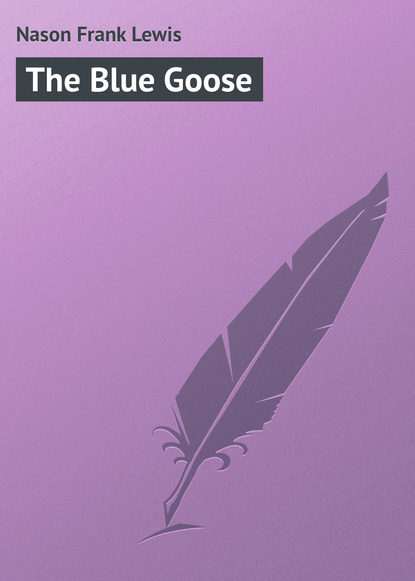По всем вопросам обращайтесь на: info@litportal.ru
(©) 2003-2024.
✖
The Blue Goose
Автор
Год написания книги
2017
Настройки чтения
Размер шрифта
Высота строк
Поля
"When are you going to send Élise away to school?"
"To school?" Pierre was struggling with his astonishment.
"Yes." Madame was holding herself to her determination with an effort.
"To school? Baste! She read, she write, she mek ze figure, is it not suffice? Heh?"
"That makes no difference. You promised her father that you would send her away to school."
Pierre looked around apprehensively.
"Shut up! Kip quiet!"
"I won't shut up, and I won't keep quiet." Madame's blood was warming. The sensation was as pleasant as it was unusual. "I will keep quiet for myself. I won't for Élise."
"Élise! Élise! Ain't I do all right by Élise?" Pierre asked, aggressively. "She have plenty to eat, plenty to wear, you tek good care of her. Don't I tek good care, also? Me? Pierre? She mek no complain, heh?"
"That isn't what her father wanted, and it isn't what you promised him."
Pierre looked thoughtful; his face softened slightly.
"We have no children, you and me. We have honly Élise, one li'l girl, la bonne Élise. You wan' mek me give up la bonne Élise? P'quoi?" His face blazed again as he looked up wrathfully. "You wan' mek her go to school! P'quoi? So she learn mek teedle, teedle on ze piano? So she learn speak gran'? So she tink of me, Pierre, one li'l Frenchmens, not good enough for her, for mek her shame wiz her gran' friends? Heh? Who mek ze care for ze li'l babby? Who mek her grow up strong? Heh? You mek her go school. You mek ze gran' dam-zelle. You mek her go back to her pip'l. You mek me, Pierre, you, grow hol' wiz noddings? Hall ze res' ze time wiz no li'l Élise? How you like li'l Élise go away and mek ze marry, and w'en she have li'l children, she say to her li'l children, 'Mes enfants, voila! Pierre and Madame, très bon Pierre and Madame,' and les petits enfants mek big eyes at Pierre and Madame and li'l Élise? She say, 'Pauvres enfants, Pierre and Madame will not hurt you. Bon Pierre! Bonne Madame!'" Pierre made a gesture of deprecating pity.
Madame was touched to the quick. Starting tears dimmed the heavy eyes. Had she not thought of all this a thousand times? If Pierre cared so much for li'l Élise how much more reason had she to care? Li'l Élise had been the only bright spot in her dreary life, yet she was firm. Élise had been very dear to her in the past, but her duty was plain. Her voice was gentler.
"Élise is not ours, Pierre. It is harder to do now what we ought to have done long ago."
Pierre rose and walked excitedly back and forth. He was speaking half to himself, half to Madame.
"Sixtin year 'go li'l Élise mammy die. Sixtin year! She no say, 'Madame Marie, tek my li'l babby back Eas' to my friend, hein? No. She say, 'Madame Marie, my poor li'l babby ain' got no mammy no mo'. Tek good care my poor li'l babby.' Then she go die. We mek good care of ze li'l Élise, me and you, heh? We sen' away Élise? Sacré non! Nevaire!" Pierre stopped, and looked fiercely at Madame.
"Yes," answered Madame. "Her mammy asked me to care for her little baby, but it was for her father. When her father died he made you promise to give her to her friends. Don't I know how hard it is?" Her tears were flowing freely now. "Every year we said, 'She is yet too young to go. Next year we will keep our promise,' and next year she was dearer to us. And now she is sixteen. She must go."
Pierre broke in fiercely:
"She shall not! Sixtin year? Sixtin year she know honly me, Pierre, her daddy, and you, her mammy. What you tink, heh? Élise go school in one beeg city, heh? She mek herself choke wiz ze brick house and ze stone street. She get sick and lonesome for ze mountain, for her hol' daddy and her hol' mammy, for ze grass and ze flower."
"That is for her to say. Send her away as you promised. Then" – Madame's heavy eyes grew deep, almost beautiful – "then, if she comes back to us!"
Pierre turned sullenly.
"She is mine. Mine and yours. She shall stay."
Madame's tears ceased flowing.
"She shall go." Her temerity frightened her. "I will tell her all if you don't send her away."
Pierre did not explode, as she expected. Instead, there was the calm of invincible purpose. He held up one finger impressively.
"I settle hall zis. Écoutez! She shall marry. Right away. Queek. Da's hall." He left the room before Madame had time to reply.
Madame was too terrified to think. The possibility conveyed in her husband's declaration had never suggested itself to her. Élise was still the little baby nestling in her arms, the little girl prattling and playing indoors and out, on the wide ranch, and later, Madame shuddered, when Pierre had abandoned the ranch for the Blue Goose, waiting at the bar, keeping Pierre's books, redeeming checks at the desk, moving out and in among the throng of coarse, uncouth men, but through it all the same beautiful, wilful, loving little girl, so dear to Madame's heart, so much of her life. What did it matter that profanity died on the lips of the men in her presence, that at her bidding they ceased to drink to intoxication, that hopeless wives came to her for counsel, that their dull faces lighted at her words, that in sickness or death she was to them a comfort and a refuge?
What if Pierre had fiercely protected her from the knowledge of the more loathsome vices of a mining camp? It was no more than right. Pierre loved her. She knew that. Pierre was hoarding every shining dollar that came to his hand. Was he lavish in his garnishment of the Blue Goose? It was only for the more effective luring of other gold from the pockets of the careless, unthinking men who worked in mines or mills, or roamed among the mountains or washed the sands of every stream, spending all they found, hoping for and talking of the wealth which, if it came, would only smite them with more rapid destruction. And all these little rivulets, small each one alone, united at the Blue Goose into a growing stream that went no farther. For what end? Madame knew. For Pierre, life began and ended in Élise. Madame knew, and sympathized with this; but her purpose was not changed. She knew little of life beyond the monotonous desolation of a western ranch, the revolting glamour of a gambling resort, where men revelled in the fierce excitement of shuffling cards and clicking chips, returning to squalid homes and to spiritless women, weighed down and broken with the bearing of many children, and the merciless, unbroken torture of thankless, thoughtless demands upon their lives. Madame saw all this. She saw and felt the dreary hopelessness of it all. Much as she loved Élise, if it parted her from all that made life endurable she would not shrink from the sacrifice. She knew nothing of life beyond her restricted circle, but anything outside this circle was a change, and any change must be for the better.
"She shall marry. Right away." Pierre's words came to her again with overwhelming terror. Overwhelming, because she saw no way of averting the threatened blow.
From behind, Madame felt two soft hands close on her straining eyes, and a sympathetic voice:
"Has daddy been scolding you again? What was it about this time? Was it because I ran away this morning? I did run away, you know."
For reply Madame only bowed her head from between the clasping hands that for the first time had distress instead of comfort for her groping soul. She did not pray for guidance. She never thought of praying. Why should she? The prisoned seed, buried in the dank and quickening soil, struggles instinctively toward the source of light and strength. But what instinct is there to guide the human soul that, quickened by unselfish love, is yet walled in by the Stygian darkness of an ignorant life?
Madame's hands were clinched. Her hot eyes were dry and hard. No light! No help! Only a fierce spirit of resistance. At length she was conscious of Élise standing before her, half terrified, but wholly determined. Her eyes moistened, then grew soft. Her outstretched arms sought the girl and drew her within their convulsive grasp.
"My poor Élise! My poor little girl, with no one to help her but me!"
"What is it, mammy? What is it?"
Madame only moaned.
"My poor little Élise! My poor little girl!"
Élise freed herself from the resisting arms.
"Tell me at once!" She stamped her foot impatiently.
Madame sprang to her feet.
"You shall not marry that man. You shall not!" Her voice rose. "I will tell you all – everything. I will, if he kills me. I will! I will!"
The door from the saloon was violently opened, and Pierre strode in. He pushed Élise aside, and, with narrowed eyes and uplifted hand, approached his wife.
"You will? You will, heh?"
The threatening blow fell heavily, but upon Élise. She thrust forth her hands. Pierre stumbled backward before the unexpected assault. His eyes, blazing with ungoverned fury, swept around the room. They rested upon a stick. He grasped it, and turned once more toward Madame.
"You will! You will! I teach you bettaire. I teach you say 'I will' to me! I teach you!" Then he stopped. He was looking squarely into the muzzle of a silver-mounted revolver held in a steady hand and levelled by a steady eye.
Pierre was like a statue. Another look came into his eyes. Youth toyed with death, and was not afraid. Pierre knew that. At threatening weapons in the hands of drink-crazed men Pierre smiled with scorn. The bad man stood in terror of the law as well as of Pierre. But when determined youth laid hold on death and shook it in his face Pierre knew enough to stand aside.
Élise broke the tense silence.
"Don't you ever dare to strike mammy again. Don't you dare!"
Without a word Pierre left the room. He had loved Élise before with as unselfish a love as he could know. But hitherto he had not admired her. Now he rubbed his hands and chuckled softly, baring his teeth with unsmiling lips.
"A-a-ah!" he breathed forth. "Magnifique! Superb! La petite diable! She mek ze shoot in her eye! In ze fingaire! She bin shoot her hol' man, her hol' daddy, moi! Pierre." Pierre thoughtfully rubbed his smooth chin. "La petite diable!"






